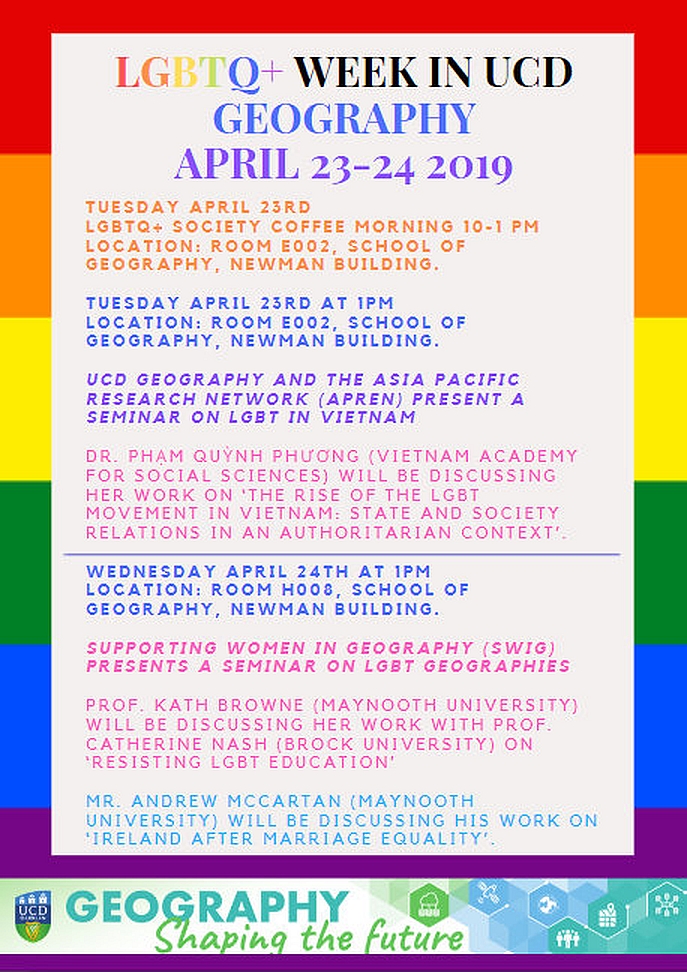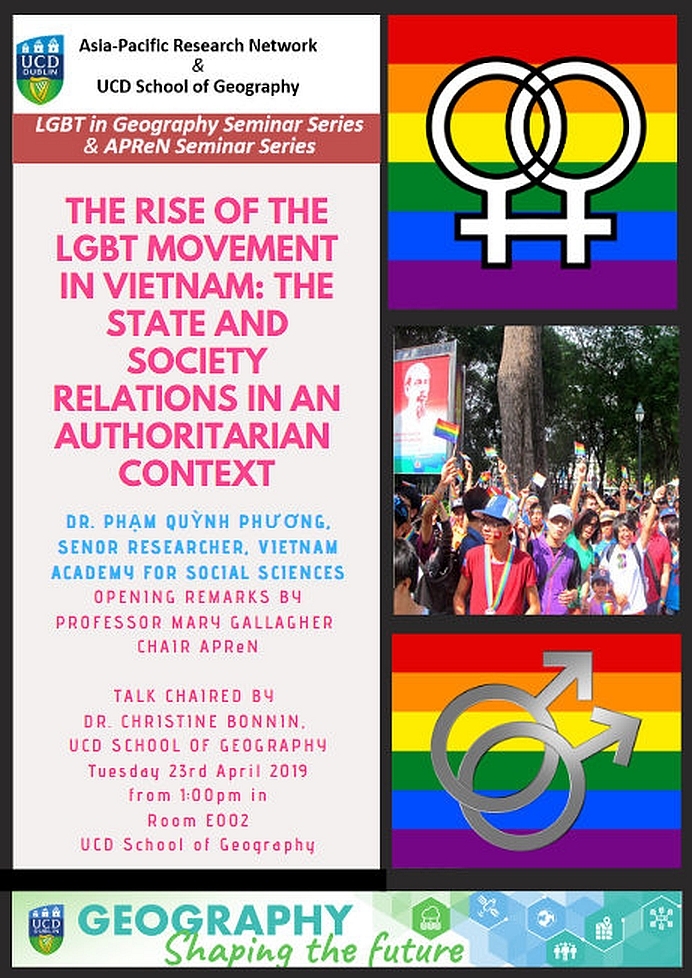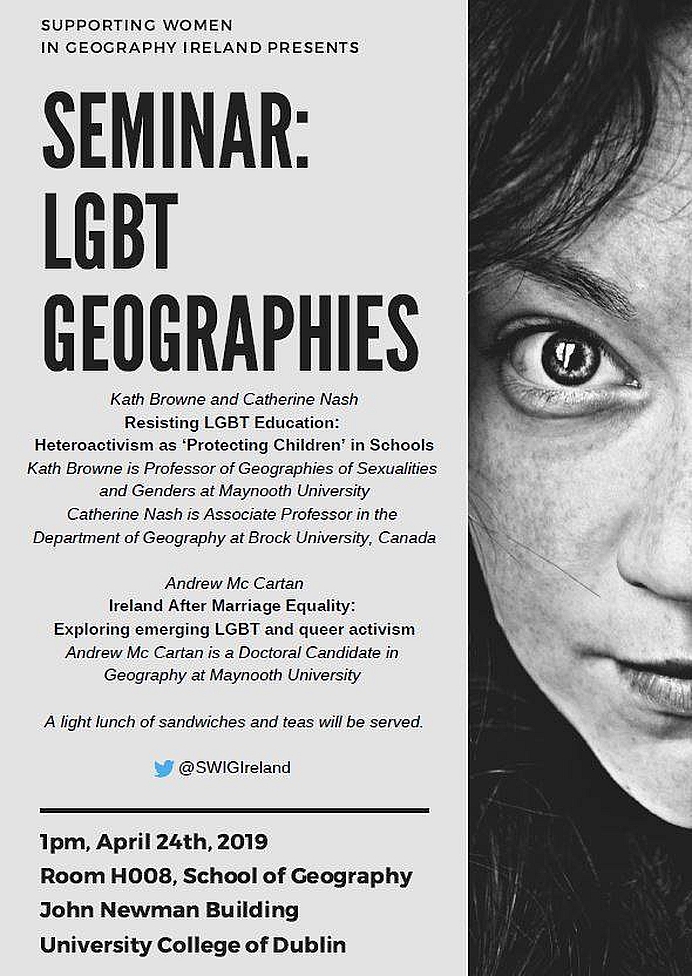LGBT Seminar and Activities in UCD Geography
Thursday, 18 April, 2019
Past Event
LGBT Seminar and Activities in UCD Geography
Thursday, 18 April, 2019
The School of Geography is hosting a series of events and seminars during the LGBTQ+ week in UCD. The seminars are expected to attract a large attendance. The various activities and schedules are listed below and we look forward to welcoming you to these events.

UCD Geography and the Asia Pacific Research Network (APReN) presents a seminar on LGBT in Vietnam
The rise of LGBT movement in Vietnam: the state & society relations in an authoritarian context - 23 April 2019
Over the past decade, Vietnamese society has witnessed the emergence of a vibrant LGBT movement. The movement has led to changes in social perceptions regarding sexual diversity, as well as state recognition of LGBT rights. Regardless of being labelled as a serious human rights violator, the Communist party-state of Vietnam has become one of the most advanced countries in Asia on LGBT issues. This talk by Dr. Phạm discusses the nature of state governance in dealing with domestic and international challenges, and the mutual benefit-led relationship between the state and LGBT activists in Vietnam today.
Bio:
Dr. Phạm Quỳnh Phương is an anthropologist and senior researcher in the Vietnam Academy of Social Sciences. Her research focuses on the relationship between the state and society in contemporary Vietnam, how the socialist state exercises its power through discourse, and how the ordinary people, with their agency, find their own ways to practice everyday culture and produce everyday politics that might not be in the same language of the state. Her recent research projects include the religious transformation in the Central Highlands of Vietnam and the rise of LGBT movements in Vietnam.

SWIG - Supporting Women in Geography in Ireland is hosting a seminar on LGBT Geographies (Transgeographies) - 24 April 2019

Abstracts
Resisting LGBT Education: Heteroactivism as ‘Protecting Children’ in Schools
Kath Browne and Catherine Nash
It is well established that schools are not neutral sites for gender and sexualities, shaping (often heteronormative) school spaces. This paper begins examinations of recent resistances to sex education curricula in Ireland and Birmingham, UK. Where once accepted heteronormativities are now being challenged through the validation of same sex relationships and support for trans students. Oppositional ideologies that are manifest in Ireland and Birmingham can no longer be understood through the labels of ‘anti-gay’, ‘homophobic’ or ‘transphobic’. We have been developing the concept of heteroactivism to name the activisms and ideologies that seek to reassert the superiority of monogamous, cis-gendered, coupled marriages as best for children and for society. These ideologies are inherently geographical, drawing both on local and individual circumstances, but also transcending national boundaries. The paper will also tentatively explore the reactions of other (largely White, Christian) organisations to the predominantly Muslim opposition to LGBT education in Birmingham.
Ireland After Marriage Equality: Exploring emerging LGBT and queer activism
Andrew Mc Cartan
On 22rd May 2015, Ireland became the first country in the world to achieve same-sex marriage by popular vote. This paper begins an exploration of the directions of LGBT and queer activism in Ireland after marriage equality. Marriage equality arguably signals an end point for a certain trajectory of lesbian and gay activism in Ireland, where decades of activism and transformative social changes massively reconfigured Irish sexual politics in the early 21st century. However, scholars and activists alike are careful to stress that marriage equality has not achieved full legal equality and that there remains much work to be done in Ireland that has been ‘won’. Concepts of homonormativity and homonationalism are commonly deployed to explain contemporary relationships between LGBT identities, citizenship, and nationality, and are prominent in debates over same-sex marriage. This paper will offer preliminary insights into how an examination of the directions of LGBT and queer activism in Ireland after marriage quality might help build an understanding of contemporary sexual politics in the Irish context.